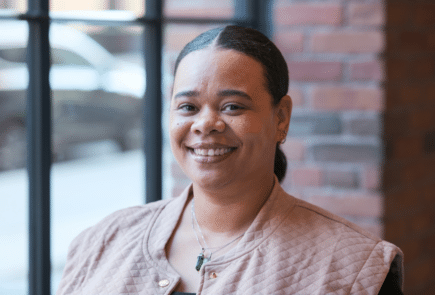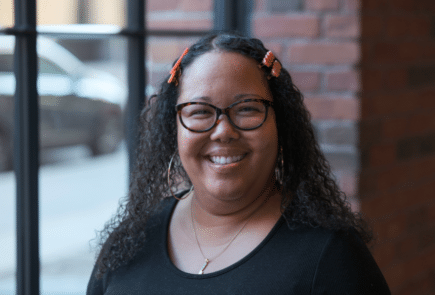What is advocacy?
Advocacy can seem like a daunting word, but it simply means speaking up and taking action to influence positive change. It can be a policy change, a change in public opinion, or a change in the lives of individuals. This can be at a personal, community, or policy level.
Individual-level advocacy
- Educate yourself and raise awareness.
- Learn about issues, share reliable articles, and have conversations to raise awareness.
- Social media
- Use your platforms to amplify the voices of those most impacted and spread reliable information.
- Vote!!
- Vote in all elections. Inform yourself about the candidates and vote for those who align with your values. Share this information with others.
- Help others register to vote and vouch for neighbors when applicable.
- Inform your community that you can still vote if you are unhoused or have a felony conviction.
Community-level advocacy
- Join or form groups
- Connect with coalitions that are already doing the work. It can be a great way to learn more about the issue and get to know who the key players are. They often provide action alerts and even templates to contact officials.
- Mobilize your community! That can be your neighborhood, friends, family, faith groups, etc. Host forums, letter-writing campaigns, and awareness events.
- Show up where decisions are made.
- Attend school board, city council, or county hearings to let elected officials know that people care and are there to hold them accountable.
Policy- and systems-level advocacy
- Contact elected officials
- Send emails, write letters, make phone calls, or set up meetings to share your perspective. You are their boss; they work for their constituents! Let them know what things they should be prioritizing and what the community needs.
- Testify at hearings
- Sharing your story, data, and impact of harm or benefit. Testimonies can be a powerful tool for informing politicians and even swaying opinions on bills being heard!
Direct support
- You can directly support causes you care about by:
- Listening to the people most impacted and amplifying their voices.
- Volunteering your time, donating money or supplies, or offering your skills.
- Encourage accountability by asking organizations, businesses, and policymakers how they address inequalities.



















